CHILDREN’S RIGHTS OP-ED
Toxic brew — how to crack the destructive legacy of Bantu Education
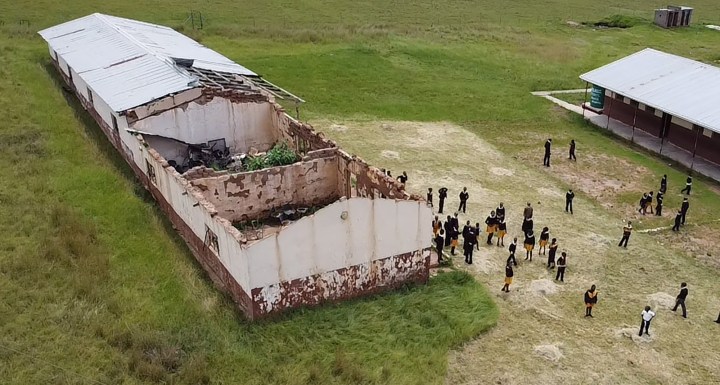
This is a plea for the churches to throw their weight back into the arena of public education in South Africa, with children’s rights as the key lever.
As our education system grapples with its many challenges, it is worth considering that all schools are sites of struggle, thanks to the interplay of value systems that must necessarily co-exist within them. These play a profound role in the education our children receive.
The report arising from the 2020 call for an Anglican church investigation into alleged discrimination in Anglican schools (now publicly available) gives us an example of how a dominant value system can be admirable, but ultimately is not enough to fix our challenges.
The schools that were examined could naturally claim Anglican Christianity as a shared value system. The report has some eloquent phrases for this, including: “The flourishing of every child within a Christian value system that stresses equality and the dignity, rights and worth of all for the sake of the common good… biblical traditional and shaped by the crucible of our history… the Anglo-Catholic Benedictine tradition privileges the inherent dignity of the human person and educational provision for the common good.”
These are fine words, but those within the system are not always in agreement on what these values mean, and, anyway, they have no traction in law or public opinion. They are the values of a subculture, and we must sometimes negotiate them alongside other value systems with more clout.
‘Old South African values’
On the darker side, there are some “old South African values” lurking in the shadows of old institutions.
One of the schools reported that their chapel was “the heart of the school” – but the building boasted memorial tablets to British regiments from the days of the 19th-century Zulu wars in Natal. We have to consider what this colonial remnant means: as Prof Precious Simba writes, “coloniality outlives colonialism”.
Then there are broader issues that arise from our apartheid history.
There was recently a teacher at a public school south of Johannesburg who reportedly got into an argument with the grandmother of a student, and wrote to her, “You are trash, and I don’t like coloured people.”
While that raises many issues, a fundamental one is the persistent use of the apartheid term “coloured” to refer to a group of South African citizens who are demonstrably made up of almost 150 different historical groupings.
The notion was artificially constructed in the 1940s, underpinning laws on Population Registration, Group Areas, Mixed Marriages and Bantu Education, and has no place in the 21st century.
If any of that apartheid categorisation still lurks in our schools, it suggests we still inhabit untenable mental rat-holes which we need to identify and reject.
A third set of values that many schools referenced were those associated with ubuntu. It seems that everyone is drawn to something about this value system, but no one is quite sure how to define what it is. While I am not qualified to comment, I note that the concept has been critiqued by many commentators. For purposes of this piece, I offer a working definition:
“Ubuntu is a broadly African value system which emphasises human dignity, human rights and human relationships.”
It is important to understand whether ubuntu is just a notion that makes us feel good – something everyone supports but no one practices – or whether its values really can be integrated into the national lifestyle without being entrenched in law.
One can argue that the Constitution is an attempt to begin to bring ubuntu values into the public arena, but what does this mean in practical life? And how would a school, for example, go about integrating this into an existing set of values that are entrenched in an institution?
Schools are, of course, governed by law, so perhaps one might revisit the rights of children as set out in the law, and use these as a goal and benchmark.
In Italy today, some 20 regions are using children’s legislated rights as such a benchmark, with appointed children’s advocates as guarantors of their rights to monitor and assess how regulations, policies and school-based practice measure up to that mark. What might happen if we did that?
Our Bill of Rights guarantees everyone the right to healthcare, sufficient food and water, and social security. It also states that every child has the right, among other things, to basic nutrition, shelter, basic healthcare… and social services, and to be protected. And everyone has the right to a basic education.
A discriminatory environment
The Anglican schools report focuses on righting any wrongs within a cluster of privileged schools which serve a limited group of people. This is good as far as it goes, but the wider question is, what is happening in our public system? And does the voice of the Church, once so loud and present in this arena, need to be raised once more?
How are we transforming the dysfunctional national system of the past? Where to begin? As good a historic marker as any is the Bantu Education system that was imposed in 1953.
Some years ago, Bishop Trevor Huddleston told me he considered the Bantu Education Act the most destructive of all the apartheid legislation.
The Eiselen Commission, a precursor to the Bantu Education Act, had recorded that, at this time, there were 4,360 church-run schools for black children in South Africa, versus 230 government ones. And while we might applaud the churches for their involvement, this still provided for about only one-third of the country’s black children.
Since the churches and missions were mostly “English” (in the broad South African sense) or Roman Catholic, they were anathema to the government. The National Party’s manifesto for the 1948 election had stated bluntly: “The state should exercise the complete supervision over the moulding of youth.”
The prevailing atmosphere in public life at this time was mainly driven by the fierce animus which still existed between the English and the Afrikaner communities, dating back to the Boer war, and only secondarily to do with the country’s black people.
Of course, tighter control of black people was part of the package, as much in the administrations of Smuts as in any Nationalist ones. There was a long history to this, dating from colonial days, but the previous century had shifted the country to an urban-industrial basis, and now the issue was black people in towns.
The key landmark in this regard was the Native Administration Act of 1927, passed against the background of rising demands for job protection for whites.
The 1922 strike – under the slogan, “Workers of the world unite and fight for a white South Africa” – encapsulated attitudes of the powerful unions and the eventual enactment of the 1953 legislation that would systematically reduce access to education for black people was one of its logical outcomes.
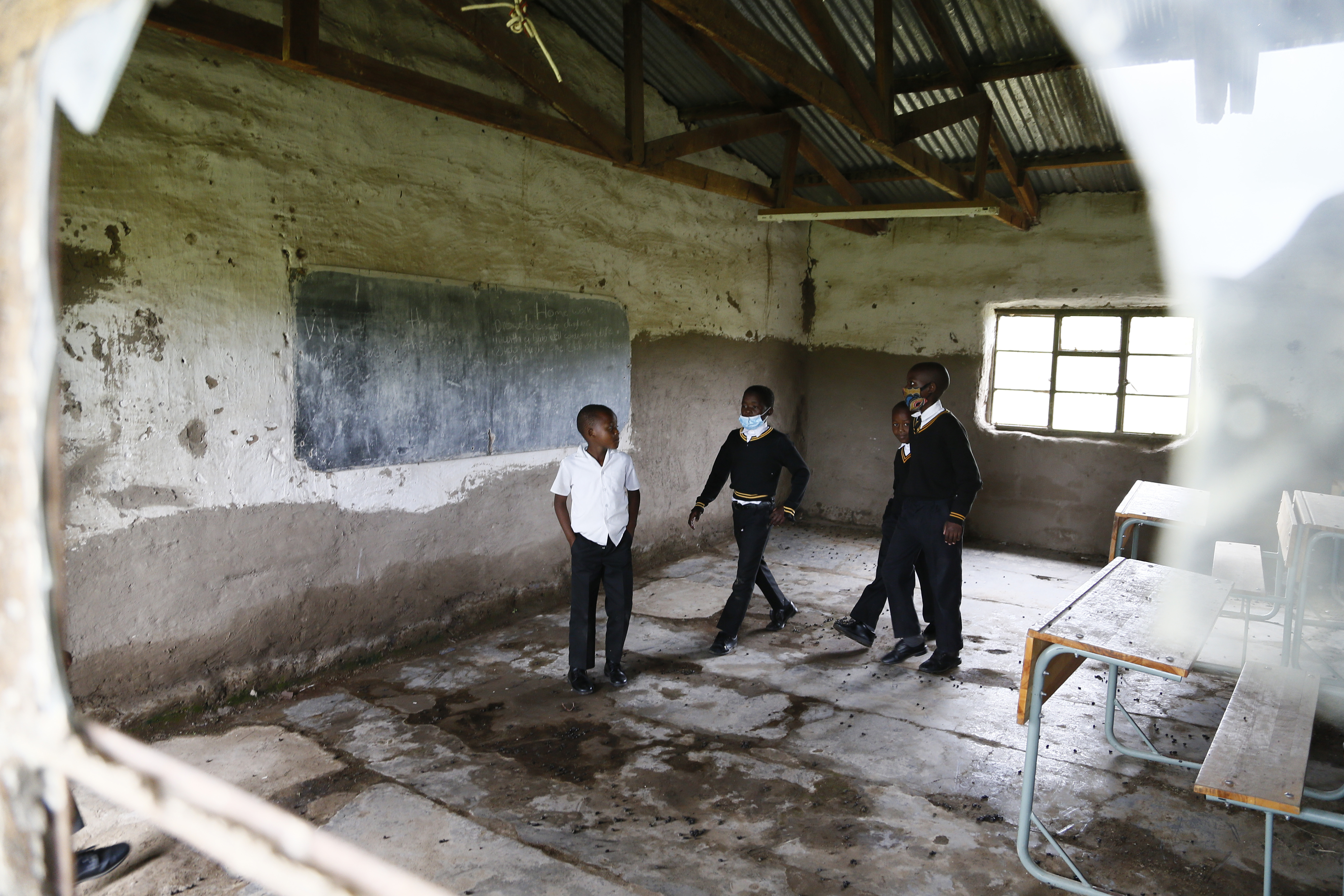
Inside Balasi primary school in Qumbu outside Mthatha on the first day of the opening of coastal schools on 19 January 2022. (*Photo: Felix Dlangamandla / Daily Maverick)
In Hendrik Verwoerd’s words to the Senate: “The school must equip (the native) to meet the demands which the economic life of South Africa will impose upon him… there is no place for the native in European society above certain levels of labour.”
The provision of education to provide only for a labour force – based on the presumption of racial superiority – was the main plank in the whole structure that included migrant labour, hostels, the pass laws and, eventually, the homelands, with the abiding myth that black people were only temporarily present in major cities and would retire to “their place” when they became sick or unemployed.
The reality and the myth stood in mind-boggling tension until very late in the transformation of the country after 1994.
An added factor in the early 1950s was that the government suspected the proprietors of church schools were preaching an illegitimate version of Christianity which stressed the dignity of the person and the open possibilities for any young person to aspire to whatever career they chose. This was anathema at two levels.
Understanding the animus behind this requires understanding the nature of apartheid.
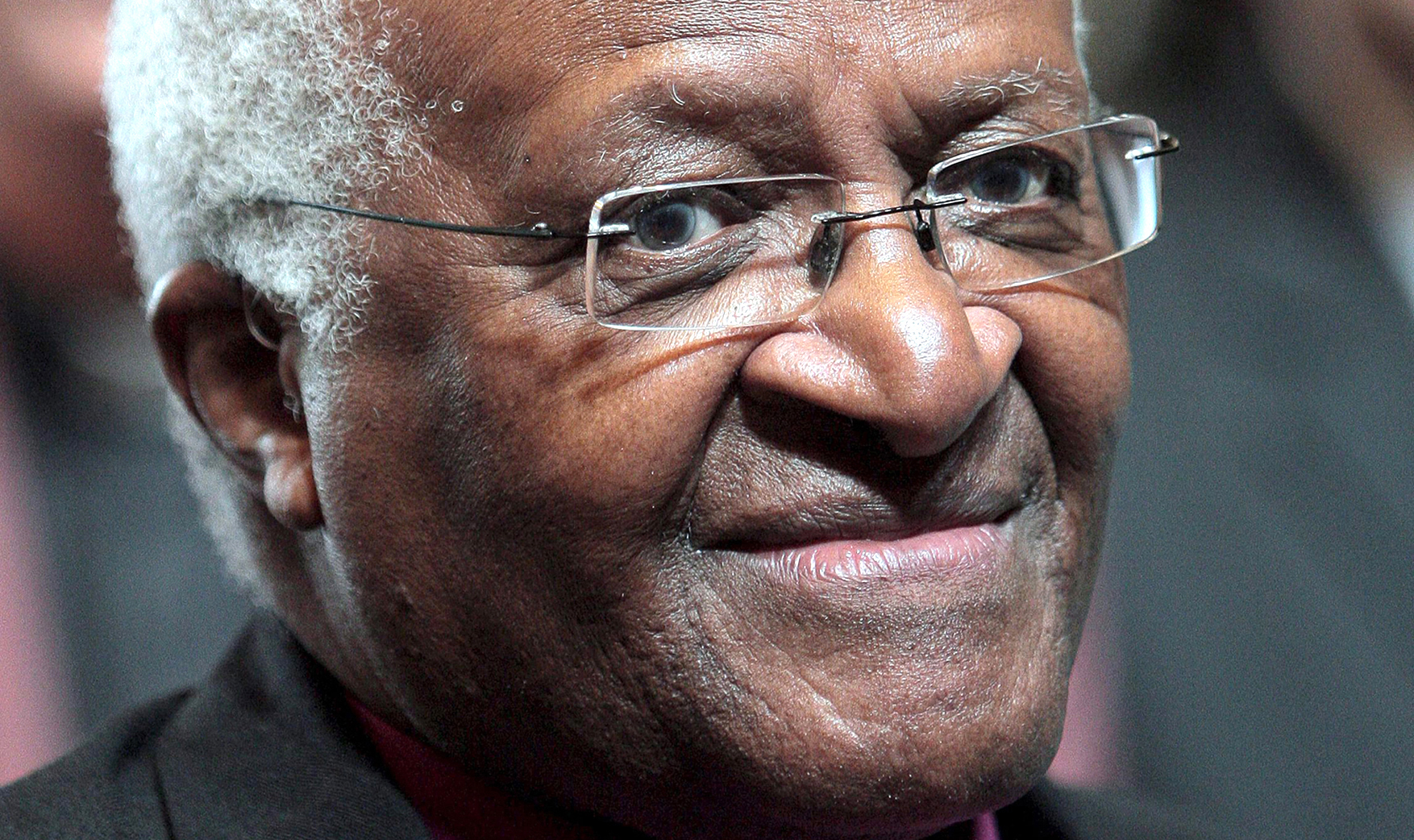
The late Archbishop Desmond Tutu. (Photo: EPA / Georg Hochmuth)
Michael Battle says insightfully in his spiritual biography of Desmond Tutu that apartheid was “a spiritual movement… To get the religious zealot to confess an error of worldview is a miracle.”
Anyone who has watched footage of the Hitler Youth at rallies and wondered how they became so intoxicated with falsehood should pause here; something can happen in the inner spaces of people which is not only more than logic or even philosophy and psychology, but invades the inner sanctum of the soul where worship and devotion dwell.
If that can coincide with convenience – as in believing that God has authorised you or your tribe to dominate or exterminate all the others – the brew is toxic.
The 19th-century European notion of natural selection and the survival of the fittest had brought Europeans to think of themselves or their nations as master races which had an anointing to go out and rule.
Among influential European intellectuals in this were Dutch theologian and prime minister Abraham Kuyper, and it was elaborated in a racial direction by Dutch philosopher Herman Dooyeweerd, who, with Kuyper, became the key intellectual influence on dominees from the Dutch Reformed Church who travelled to train in the Netherlands or brought their ideas home with them.
This is why it was so shocking, effective and clever for Allan Boesak to persuade the World Alliance of Reformed Churches to brand apartheid a heresy and expel the South African churches for adhering to it.
Attacking the foundations of their faith was far more challenging than any political statement from the English or anyone else.
So how are we doing?
Against this background, we must ask: how are we getting on with transforming our education system?
The Preamble to the South African Schools Act of 1996 – the foundational legislation for education in this country, second only to the Constitution – says:
“… this country requires a new national system for schools which will redress past injustices in educational provision, provide an education of progressively high quality for all learners and in so doing lay a strong foundation for the development of all our people’s talents and capabilities… combat racism and sexism… contribute to the eradication of poverty…”
The goal is clear. Our educational circles have creative and passionate people doing their utmost to bring about change for the better; to bring us out of the shadow of Bantu Education.
But perhaps the scale of the problem – the vicious grip of the old system and the splintered nature of the adult cohort who are supposed to be bringing change – is simply too strong for the current approach to achieve the level of transformation we need.
The Italian model of child advocates is premised on the consideration that all regulation and policy around schools must be judged by a single criterion: Does this advance the fulfilment of the legislated rights of our children?
All else must take second place to that guideline.
As we try to find leverage to move the wellbeing of South Africa’s children forward, what could it look like if we took the rights in the Bill of Rights, referenced above, and made them absolute imperatives which the departments of basic and of higher education are obliged to fulfil?
Children generally cannot advocate for their own rights, which are all too often subsumed by the rights of educators, unions, bureaucrats and local communities. If we seek change, it has to begin here.
Part of the crisis of the Bantu Education system is that it has never had within it a social contract that provides for and protects black children.
In many countries, it is assumed that parents can go to work to pay taxes to pay teachers, knowing that those teachers will stand in their place – in loco parentis – during the school day.
The role of educators entails moral responsibility for the whereabouts and wellbeing of every group of children registered at a school. If a child is not at school, it is the teacher’s job to know why not. This is their obligation to society. Naturally, they should have systemic support, but it is an indissoluble obligation.
To shrug that off, is to deny any claim that ubuntu is driving our public school system. It is not.
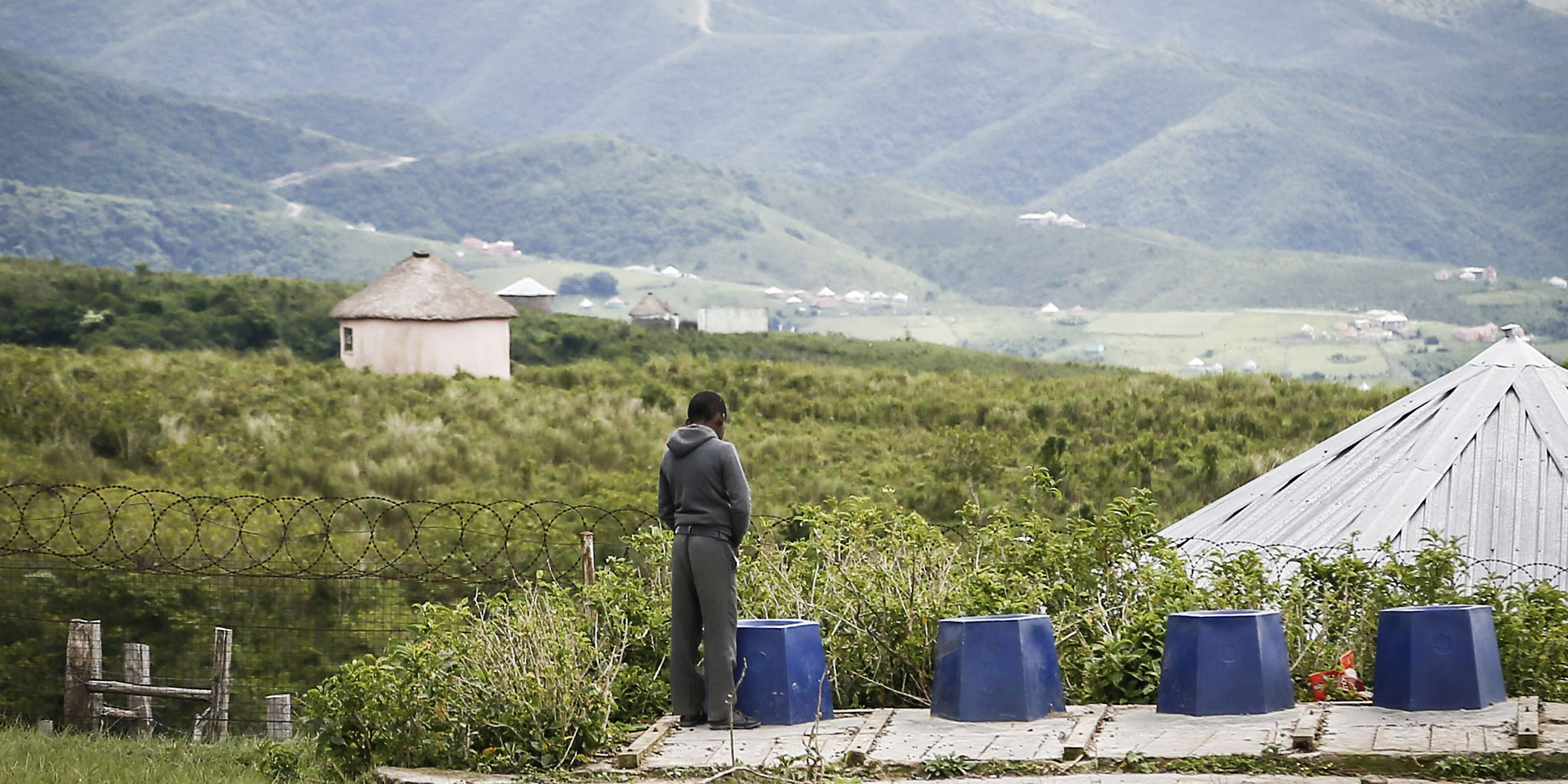
A learner at Vulingcobo Junior Secondary School uses an old pit latrine toilet at the Sibanye-Stillwater mine in Xhora, near Elliotdale, in the Eastern Cape. (Photo: Felix Dlangamandla / Daily Maverick)
Lockdown highlighted this, notably in concerns expressed by educator unions when it came to the reopening of schools. It was all about the rights and wellbeing of members – not at all about the rights, safety or wellbeing of the children in their care. It suggests that no duty of care is embedded in the profession.
We may be doing a little better with nutrition – which, as we have noted, is doubly present in the Bill of Rights, for all citizens and particularly for child citizens.
I worship in a small church in Sebokeng in the Vaal Triangle, where the people’s resources are small. I was struck on arrival there by a lady who appeared every Sunday with a pot of food for the children, and I said so.
“You must understand,” she said, “that these children have not eaten since they left school on Friday.” This is in Gauteng, half an hour’s drive from Constitution Hill.
Visit Daily Maverick’s home page for more news, analysis and investigations
When a parliamentary committee looked into the National School Nutrition Programme before lockdown, they concluded that the country was then feeding about 4.4 million children daily at school, out of the 9.7 million who were entitled to that food.
The programme aims to enhance learning capacity, incentivise school attendance and resist basic diseases. However, it does not explicitly acknowledge the dire effects of failing to feed children, such as the irreversible stunting which happens if growing bones are not nourished, leaving people unable to undertake certain employment (or earn, build a house, raise a family, etc ) because they simply fall short by a percentage of their potential height, strength and stamina, for life.
They equally fall short by a percentage of potential earnings, health, housing, longevity and all those other items.
It is alarming that, two years ago, we were failing more than half of the children eligible to be fed from the public purse. More alarming is that when lockdown came, the scheme simply stopped. There is little evidence of any attempt to keep the wheels of nutrition turning while the schools were closed.
That said, there are of course pockets of resilience and care.
In October I was at a large public primary school in a township on the day before the children returned from the holiday. There were almost 30 adults there in various capacities associated with the nutrition programme, assessing the nutritional status of households and whether food should be sent to them over the weekend to maintain the nutritional status of the children attending school.
At this school, 1,550 children receive porridge on arrival every day and lunch at mid-morning. An NGO chips in with a third meal before they leave. Some 60 households then receive boxes of food at home for the weekend.
Not only is nutrition a constitutional right of both adults and children in itself, but the Nutrition Programme is a tacit acknowledgement that the right to nutrition is embedded in the right to education. It is thrilling to see it working really well in one place, but we know there are many gaps elsewhere.
We can do the same assessment exercise with any of the elements in our policy: school transport, Grade 4 literacy, adequate classroom space and educator ratios, pit latrines, the provision of decent facilities generally, protection from kidnapping, provision of internet access, or any of the other criteria that tick the box of adequate modern schooling.
Critically, are the provision and the shortfalls evenly spread so that no one suffers more deprivation than another on grounds of their race and the legacy of Bantu Education?
In many respects, we can continue to lay the ills of our society squarely at the door of Bantu Education: poverty, unemployment, human impoverishment in the arts and culture sector, cadre deployment, dysfunctional municipalities, xenophobia, Eskom and potholes.
One of Bantu Education’s greatest ills has been its longevity: by 1976, 80% of teachers in Soweto were themselves products of that system. How can we suddenly say, stop teaching this rubbish and start providing quality education, when teachers have no criteria for knowing what that looks like or how to deliver it?
Teacher redevelopment is a critical target for overcoming the blockages to transformation.
In the department of basic education there are dozens of capable, passionate and visionary staff who spend every day, every conference, every opportunity, trying to initiate something. But they are burning their brakes; all their mighty effort has produced relatively little because of the grip of the discriminatory system they inherited, and the non-alignment of the social forces which need to co-operate to change it.
How to escape this impasse?
The constitutional rights of the child citizens are the key.
The Archbishop’s Task Team report, and the Church resolution that welcomes it, make two connections which lead the Church and the churches’ schools back to where they stood before they lost their voice.
The churches’ independent schools, they say, are nodes of the mission of the Church. Each of them has a societal context wherever they are located, where they are daily seen and heard by the parents, the suburb and the city.
So if the Church has fallen silent since the 1950s over the state of public education, it is long overdue that it recovers its voice.
Education officials may be nervous about this; we are not suggesting the churches invade the proper space where the department has its mandate. But as we live in the same communities as the schools and their users, we ought to be offering support from our churches to the schools nearby, and be there to serve.
So the question stands, what would happen if we inverted the system so that every issue is decided by the criterion of our children’s constitutional rights and every player in the system gave that criterion priority in everything?
Such a course would require outstanding leadership from the department, the unions and society at large. The Church cannot plug that gap, but we can make noise and keep on insisting that the law is supreme and must be actively fulfilled. DM
Bishop Peter Lee chairs the Anglican Board of Education for Southern Africa. He writes in his personal capacity.



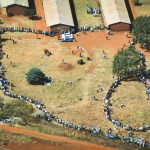











 Become an Insider
Become an Insider
C’mon Bishop…a valuable history lesson here, but if schools are decorated with colonial tablets, stop pontificating about them and just rip them out and replace them with the 21st century version – iPads for learners. Why our education system demands that parents spend money they don’t have on embarrassingly ridiculous school uniforms beggars belief. Get rid!
I strongly disagree that pit latrines, cadre deployment, and Eskom etc are apartheid legacies. They are CHOICES…made by the ANC and by extension the people that voted for them. If it was decided that buying submarines took precedence over maintaining vital infrastructure or building schools who were we to argue. At least in our vanity we looked like a serious player on the world stage.
To borrow from psychology, I’d argue in fact that apartheid/colonialism has left us (and most of Africa) in a state of ‘learned helplessness’ about which we’re still ‘in denial’.